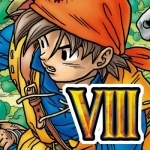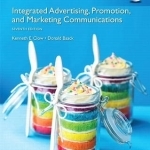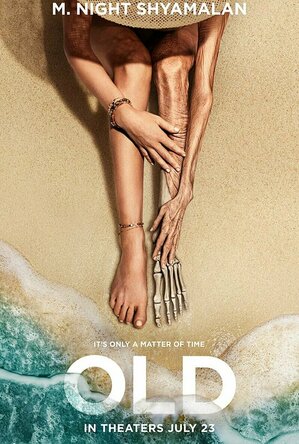
Green Screen Live Video Record
Photo & Video and Productivity
App
Recording your own videos using any background has never been so easy! Thanks to Green Screen Live...

Urology, the Gold Journal
Medical and Magazines & Newspapers
App
Urology, the Gold Journal It just got a whole lot easier to keep up with the latest research and...

DRAGON QUEST VIII
Games
App
[Recommended Hardware] iPhone 5 or Higher/iPad (3rd Generation or Better) Please Note: iPhone 4 is...
Bob Mann (459 KP) rated Old (2021) in Movies
Jul 28, 2021
Positives:
- The premise feels very familiar (desert island beach; time slips; weird things happening.... "Lost" anyone?). But as a shell for a big screen adventure it kept me well-engaged.
- Shyamalan and his "Glass" cinematographer Mike Gioulakis use some novel techniques to portray the ageing effects. The angles they utilize feel quite Hitchcockian at times. Shyamalan supports this with the sound design, which makes this a REALLY good movie to watch in a cinema with good surround sound. Often the camera will be spinning showing nothing but ocean or rocks, with the character's conversation rotating behind you in the cinema. It's really quite effective.
- Shyamalan knows that no visual effects can improve on the horrors your mind can come up with. Although a '15' certificate, the "sustained threat, strong violence and injury detail" referenced by the BBFC pales into insignificance (in terms of what you actually see) compared to the equally rated "Freaky".
- I've seen other reviews comment that the "twist" (no spoilers here) was obvious. But, although not a ground-breaking idea, I was sufficiently satisfied with the denouement. It made sense, albeit twisted sense.
Negatives:
- I enjoyed the movie's leisurely set-up, introducing the characters and the movie's concept. (In many ways, it felt like the start of one of Irwin Allen's disaster movies of the 70's and 80's). But then Shyamalan turns the dial up to 11 and the action becomes increasingly farcical. Add into that the fact that you can see some of the 'jolts' coming a mile off, and the movie becomes progressively more disappointing, with a high ERQ (eye-rolling quotient) by the end.
- In particular, there are inconsistencies to the story that get you asking uncomfortable questions. For example, wounds can heal in the blink of an eye.... but not stab wounds apparently.
- The cast is truly global in nature: Vicky ("Phantom Thread") Krieps hails from Luxembourg; Bernal is Mexican; Sewell is a Brit; Amuka-Bird ("David Copperfield") is Nigerian; Leung is American; Eliza Scanlan is an Aussie; and Thomasin McKenzie (so good in "Jojo Rabbit", and good here too) is a Kiwi. But although it's clearly quite natural that an exotic beach resort would attract guests from all over the world, the combination of accents here makes the whole thing, unfortunately, sound like a dodgy spaghetti western!
Summary Thoughts: 'Time' and 'ageing' have of course been a popular movie topic for many years. I remember being both gripped and horrified by George Pal's wonderful 1960's version of "The Time Machine" when Rod Taylor threw his machine into fast forward and the dead Morlock decomposed in front of his eyes! Ursula Andress did the same as the rapidly ageing Ayesha in 1965's "She". And, more recently and with better effects, Julian Glover did the same in "Indiana Jones and the Last Crusade".
Unfortunately, "Old" isn't likely to join any of these classic movies in my consciousness. It's a diverting enough movie, with fabulous views of the Dominican Republic (which the local tourist board will no doubt be delighted with). A "less is more" approach might have made this a classic. But unfortunately, that's not what Shyamalan delivered here. Since what we get is a 'Lost-lite' with farcical elements.
And, by the way.... The movie that Charles (Rufus Sewell) refers to starring Jack Nicholson and Marlon Brando is "The Missouri Breaks". It has a very unusual John Williams soundtrack, which I have on vinyl somewhere and is probably worth a few bob!
(For the full graphical review, please check out One Mann's Movies on t'interweb, Facebook and Tiktok. Thanks.)
Sophia (Bookwyrming Thoughts) (530 KP) rated Dreamstrider in Books
Jan 23, 2020
Every time the concept body invasion appears in a book, I regard it with absolute awe and creepiness (an odd combination, methinks).
<div class="separator" style="clear: both; text-align: center;"><img src="http://bookwyrmingthoughts.bookblog.io/wp-content/uploads/sites/317/2015/11/supernatural_dudeyes.gif"; width="320" height="179" border="0" /></div>
Have I mentioned I feel really disturbed over the idea of someone a dreamstrider having the ability to take control of your body and access to your thoughts while unconscious, even for a short period of time?
The concept, however, is uber-cool. Smith brings us to a fantasy world where using dreams in the form of espionage is completely acceptable as a dreamstrider, Livia works for the ministry, and she inhabits another persons body while they are asleep.
If I placed Livia in a character category, she would be right next to Alina Starkov from Leigh Bardugos <i>Grisha</i> trilogy. Over the course of the book, shes on the downside; on the plus side, it fits so well with Livias character and past. Livia lived her entire life as a tunneler, trying to survive day by day until she meets Professor Hesse, where she is introduced to her potential as a dreamstrider and the good she can do for the empire for her citizenship and freedom.
<div class="separator" style="clear: both; text-align: center;"><img src="http://bookwyrmingthoughts.bookblog.io/wp-content/uploads/sites/317/2015/11/freedom.gif"; width="320" height="128" border="0" /></div>
Unlike Alina Starkov (Alina is too mopey over Mal, okay?), Livias mope is more realistic. She has big dreams and strives to achieve them, crushes over her best friend (its harder for males to be one of my best friends that circle is <em>elite</em>), secretly sweet, and insecure/cautious about many things.
But enough about Livia and how shes secretly awesome even though she will never <i>ever</i> admit it. I didnt feel very into <em>Dreamstrider</em> the passphrases in the Land of the Iron Winds are written in a very rhythmic style, but I didnt care too much aside from the fact it sounds poetic. But poetry and I dont get along, and this is why I will never read Ellen Hopkins. I have nothing against the author, though.
<div class="separator" style="clear: both; text-align: center;"><img src="http://bookwyrmingthoughts.bookblog.io/wp-content/uploads/sites/317/2015/11/I-Know-Nothing-Apparently-On-Game-Of-Thrones.gif"; width="320" height="179" border="0" /></div>
Ellen Hopkins aside, dreaming is a big deal it plays a part in almost everything in the Barstadt Empire, but it felt more like a cultural thing (like Greek myths are to Greeks). Im taking it all in, but the whole dreaming thing? Its just there, and the only big deal seemed to be using dreaming in detective work and finding out information. The whole point of the book is really just Livia becoming more confident in not just herself, but her abilities. By the end of the book, I felt satisfied, but I just wanted more from the book.
<a href="https://bookwyrmingthoughts.com/arc-review-dreamstrider-by-lindsay-smi/"; target="_blank">This review was originally posted on Bookwyrming Thoughts</a>

Integrated Advertising, Promotion, and Marketing Communications
Kenneth E. Clow and Donald E. Baack
Book
For undergraduate Advertising and Integrated Marketing Communication courses. A Modern Guide to...
Richard Hell recommended Pickup on South Street (1953) in Movies (curated)

hide.me VPN
Productivity
App
More than 5 million users trust hide.me VPN. How To Use This App Step 1: Download the app Step 2:...
Zuky the BookBum (15 KP) rated Anatomy of Innocence: Testimonies of the Wrongfully Convicted in Books
Mar 15, 2018
Reading about the lives of these poor, innocent human beings being treated like theyre dirt, like theyre less than dirt, is devastating. A number of these stories actually brought tears to my eyes. How this injustice goes on, I cant fathom. In many of these stories we hear how there are alibis that prove the person wasnt there to commit the crime, but they convict them anyway. There are confessions from other people to crimes, yet they will convict someone else. There is someone elses DNA on a victim's body but they will commit someone whose DNA is not on the body. And possibly the worst one of them all, there are statements from VICTIMS that the person they have arrested is not the right person, yet they will still convict them. How can a legal system, thats supposed to protect us and who were supposed to trust, let this happen? It makes my blood boil.
In this book, each persons story is written by a prolific crime writer, so all of these accounts are really well written and they really bring out raw emotions in you because theyre so well presented and you can feel the exonerees pain.
Many of these people spent over a decade, if not over <b>two decades</b> of their life trapped in the walls of dirty prisons for crimes they were innocent of, such as murder, child murder, rape and GBH. The brutality of the officers arresting these people makes me sick. <b>Literal</b> torture is used on innocent people, as young as 17, to coax a <b>false confession</b> out of them, all because they want to be able to arrest someone. What makes me sicker is that these officers and the higher powers who turn(ed) a blind eye to this kind of abuse are never charged or made to own up to their brutalities AND because of the idiocy of these *insert the worst possible swear word and insults here* policemen, real child sex offenders and heartless murderers are <b>NEVER CAUGHT.</b>
This book is hopeful, but it is also heart breaking and while I could go on forever talking about the hatred and rage that this book makes me feel, but Im going to end it with this instead.
<b><blockquote>GLORIA KILLIAN
DAVID BATES
RAY TOWLER
MICHAEL EVANS
KEN WYNIEMKO
KIRK BLOODWORTH
AUDREY EDMUNDS
ALTON LOGAN
PETER REILLY
GINNY LEFEVER
BILL DILLON
JEFF DESKOVIC
ANTOINE DAY
JERRY MILLER
JUAN RIVERA</blockquote></b>
<b>You are brave and you are strong. Thank you for sharing your stories with us and shining a light on a subject so often ignored. I hope the world does nothing but right by you from here on in. You, over anyone, deserve it.</b>
I have been inspired. I am now going to look into the UKs own Innocence Group and see what I can do to help those 10% who are wrongly convicted and being left to rot in prison.
<i>Thanks to Netgalley and W. W. Norton & Company for giving me the opportunity to read this book in exchange for an honest review.</i>
Purple Phoenix Games (2266 KP) rated Chronicles of Crime: 2400 in Tabletop Games
Nov 17, 2021
Chronicles of Crime: 2400 (which I shall shorten to 2400 for the duration of this preview) is an app-assisted campaign, murder-infested, cooperative storytelling game for one to four players. If you are familiar with the original Chronicles of Crime, you already mostly know how to play 2400 (there are a few new mechanics here). However, should ye be of the uninitiated, allow me to set the stage for this incredible gaming experience.
DISCLAIMER: We were provided an advance retail copy of this game for the purposes of this preview. These are retail copy components, so they should be exactly what you would receive in your copy. Also, it is not my intention to detail every rule in the game, as there are just too many. You are invited to download the rulebook, purchase directly from the publisher, or through any retailers stocking it after fulfillment. -T
To setup, place the Evidence Board in the middle of the table and the Home Location Board near. Keep all the decks of cards nearby (shuffled or unshuffled, whatever is your liking) as well as the alphabetically-labeled, double-sided Location Boards. Place out the Implant Board and the Raven card within reach (new to 2400). Fire up the Chronicles of Crime app, choose “2400,” and then choose the case you would like to play. The app will walk players through the additional setup steps for the case being played. For this solo preview the photos represent happenings in the Tutorial scenario. Also, to be completely upfront I got a perfect 100/100 for a final score… for the introductory Tutorial. Autographs can be purchased at the end of the preview.
Each of the cases will involve players traveling to different Location Boards and meeting Characters at these locations. Many cases will be involving several Special Items and, new for the 2400 version, augments to the main character, Kalia Lavel, and her cybernetically-enhanced pet Raven. The Raven (unnamed in the game) acts as a portable computer, able to access information across the web and provide insight into certain aspects of the case being solved.
By using the app and scanning the QR codes on the boards and cards players will be learning about the case, viewing the scene of the crime(s), inspecting items, chatting up locals for information, and also new for 2400: visiting new Cyberspace Locations (a la The Oasis in Ready Player One)! With so many new additions to the CoC series here in the 2400 chapter, seasoned vets will find something for which they can be excited.
Play will continue not so much in “rounds” but until the players have enough evidence and a good handle on the situation enough to return Home to recharge, or visiting HQ to divulge case information by scanning answers to their questions about the case. The app then assesses the accuracy of the answers and outputs a score. For reference, though I did receive 100/100 on my first play of 2400 I did only receive a 70/100 on my first runthrough of the original Chronicles of Crime, so playing this style of game several times seems to improve how one plays.
Components. As most items in the box of the game are card or cardboard-based, and all really great quality, I will speak on other component items. Firstly, the art and art style throughout the game is simply stunning. I mean look at those Location cards and character art! This art really speaks to me and it says, “I’m gorgeous.” As a side note, I think I will be contacting Lucky Duck Games to get my hands on the font used on the Evidence Category cards. It’s just a perfect choice in this setting.
The app. I have only great things to say about the app. It’s the same app that you would use for all Chronicles of Crime games, and operates the exact same way. For me it has been flawless to use and just a joy to bring technology into the gaming world, especially for a game set in the year 2400. I am obviously no purist game enthusiast, as I enjoy these hybrid model games. Once you play with the app you will see how ingenious a system it really is. The app coupled with the nondescript cards and other components in the game make for infinite storytelling possibilities that can only be limited by creativity and time constraints. I love the components in the box AND the marvelous app.
Gameplay for me is also just glorious. I love being able to sit down, setup the game, and let the app tell me what’s going on. So what should I do first? Oh, let’s mosey on down here to this Location Board and drum up some information. Ooh I found an Item! I should have the Raven scan it for any historical information. Hmm, it registers as being hot? Okay, time to go back to that location and speak with the other person who was in there. OH CRAP, I wasted too much (in game) time and now that other person is gone?! Uh oh, I better stop messing around here…
It’s just amazing, and I love this family of games. I am so stoked to delve more into 2400 and discover more shenanigans happening in futuristic Paris. My implants (no jokes here please), Raven, and I are out to solve all the cases and beg for more. If you are looking for a game that uses a hybrid board game/app model, are a fan of this setting, or just want to have a really great experience playing a game, I urge you to consider Chronicles of Crime: 2400. It has everything I love in a unique game and I just can’t get enough! Oh, and for me, this is the best one of the bunch. I don’t know what it is exactly that I love so much, but it adds the right amount of extra stuff to CoC that I just feel like playing these scenarios endlessly. That is, until I have run out of scenarios and have to cry to LDG or fans to create more and more. If only I were more creative.




